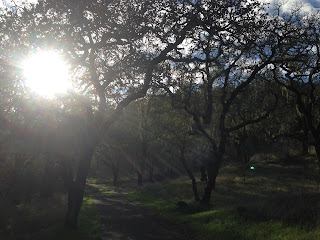Monday, February
12, 2018
Mrs. Madison still isn’t back at school. They said
she’s having a sabatical. Or a cebatical. Something. I’d look it up to find out
what it means if I could, but I can’t google it, and we don’t have a
dictionary.
That seems weird to me, now, not having a dictionary,
but I don’t think I’ve used one since, probably, 2nd grade. I think
that’s when we learned about alphabetizing and using a dictionary, but you
don’t need a dictionary when you have the internet.
I want to talk to her and find out what really
happened to her, but I don’t know where she lives. I tried asking in the
office, but they wouldn’t tell me, just kept saying “it’s policy” blah blah
blah. Which, fine, I understand that about not giving teachers’ addresses to
students because they’d get egged all the time if everyone knew where they
lived, but this isn’t like a normal circumstance!, and you’d think they’d make
an exception. But, no! It’s policy blah blah blah.
Which leaves the internet… Oh, wait, it doesn’t!
Fucking Trump and the internet. What I need is a dictionary for people and
where they live, but we don’t even have a dictionary, so I’m sure we wouldn’t
have one of those, either, even if they made them.
So we’re having subs in her class, a different one
every day. Some old lady who used to be a teacher who just wanted us to sit
quietly and nothing else. Some young college guy who was an IT major or
something but doesn’t have anymore, right now, because, basically, there are no
more computers. I haven’t touched my computer in over a week. What’s the point?
He was funny, though, and told a bunch of stories
about his friends getting drunk that he would probably get in trouble for
telling us if they knew he had. And I suppose he was cute, but ALL of the girls
crowded around him at the end of class and it was SO stupid because he had to
be, like, I don’t know, at least 22 or something, but Gretchen swears she got
his phone number, but she wouldn’t show it to anyone because she didn’t want
anyone else to use it. I bet he gave her his cell phone number, so a lot of
good that will do her!
Today’s sub was a black guy who wanted to know what
we’re studying, or what we WERE studying before Mrs. Madison “left,” because
there was no lesson plan. We told him we’re studying poetry but it didn’t
matter because the soldiers had taken all our English books.
He asked us what poetry we’d learned and no one could
answer. Or no one wanted to. After all our books were taken, it was pretty
clear no one wanted to talk about books. I certainly hadn’t told anyone I had a
copy of Fahrenheit 451. I even kept
it hidden when I wasn’t reading it. Again. Because it’s the only book I have,
and I don’t have a lot else to do, so I guess I’m kind of trying to memorize
it, just like in the book. Which is kind of funny, I think. And ironic. I
think. I think the word is ironic.
I flipped through my English notebook, but the only
things I had written down were
Walt
Whitman
Emerson
Thorough
I still think Thorough is a weird name for someone to
have.
I was thinking about saying something when Abi said,
“Walt Whitman.” Then, without really stopping to think, I said, “Yeah,
something about leaves and grass.”
And he started laughing! He started laughing and I
could feel my cheeks turn red, and everyone else started laughing, too, but I
know they were just laughing because he was laughing, not because they knew
what was funny. It made me mad which made my cheeks burn more.
But the sub knew, too, and started asking some of them
why they were laughing and none of them could answer, which made more people
laugh, even me, and it was okay after that.
Then he explained that it was Leaves of Grass and that he would bring his copy from home if he
gets to come back.
He talked about poetry for a little while after that
and quoted some poems to us that he had memorized, which I thought was cool and
was like Fahrenheit 451 and the way I
was starting to remember that back, but he did it just because he wanted to or
liked to or something not because he didn’t have anything better to do. I never
met anyone before who had memorized poems and books and stuff.
Then he told us that poetry isn’t about just poems,
and we talked about music for a little bit, and he quoted some songs to us and
told us to yell out the songs as soon as we knew what they were, which was
funny because it was harder than it sounds like it would be and just because
there was no music to go with the words.
At the end, he said poetry can also just be beautiful
language, and he quoted some speech my Martin Luther King. I don’t really know
who he is other than that he has a holiday and everyone jokes about it being
milk day. Oh, and he was killed by someone. His speech was really good, though,
but it was a little long. I wanted to write it down, but I got too far behind
and gave up. I wish I could look it up, but I have no way to do that at home or
anywhere, really. I do remember one part:
I
have a dream that one day every valley shall be exalted, every hill and
mountain shall be made low.


























































